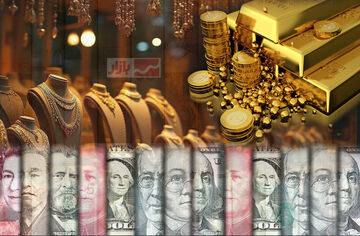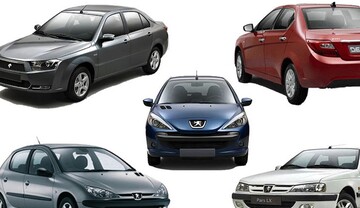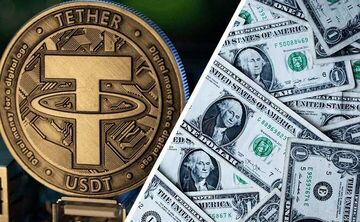Tehran(Bazaar): Glenn Parry ,Professor of Digital Transformation; Head, Department of Digital Economy Entrepreneurship and Innovation,has sent a note to Bazaar News Agency about his .views cryptocurrency.
One can ask how electronic money effects our lives. I live in Europe and rarely use physical money. I have travelled across many countries without ever holding their currency. All is done electronically via bank cards, internet and mobile phone payment systems. In the UK we have contactless payment systems, where you hold your phone or card near a device to allow payment, whilst in China they use WeChat Pay. During the recent pandemic, many shops requested digital payment, and removed the need to physically interact with customers. We have moved away from traditional forms of physical money.
The digital money we use is from payment agents. Visa, American Express and MasterCard are well known. There are many new entrants to the market. Apple Pay removes the physical card, taking the data onto the device. These firms are the data controllers for our money and they are not necessarily even banks. Soit is not such a radical idea that the next step is cryptocurrency.
Bitcoin is the most well-known. I am surprised when I read those in online forums complaining about the lack of regulation in crypto markets – particularly Bitcoin. Bitcoin was designed for trusted peer-to-peer exchanges of electronic cash without the need for central trusted authorities. That is to say, it was designed specifically to function without oversight and regulation from banks, governments or third parties. It is built on a distributed ledger – a blockchain – that captures all the transfers and holds them publically for anyone to see and check. All transactions ever made can be seen and traced on the blockchain. The blockchain provides an immutable (unchangeable) record of the transactions. The individuals on the chain are anonymous, so we cannot necessarily know who was involved. However, when money is transferred from digital currency exchanges into traditional banking systems individuals become identifiable. Numerous other crypto currencies have been developed. Some mirroring Bitcoin, others using different algorithms that employ less energy as the technology underpinning Bitcoin requires significant electrical power to ‘mine the blocks’ and keep it going.
When I first came across it a Bitcoin was worth £250. Bitcoin peaked at ~£50,000. Today its worth £35,000. I didn’t buy at £250 as I saw no utility in Bitcoin, but I did appreciate what it was trying to do as a social experiment. My lack of investment could be an indicator that I just don’t understand the true value of cryptocurrency. That may be true, though I am not sure who truly knows. The Bitcoin experiment has evolved from some technology experts playing with distributed ledger system into a consumer mass market. There is constant chatter on bulletin boards and advice to buy or sell. However, it is a wild market,purportedly with hidden figures seemingly manipulating the value. I still don’t understand what it is for, though I can see it has become an instrument of financial speculation for the brave or foolish, dependent on your point of view.
I have seen a number of government plans to develop cryptocurrencies. The government themselves are a trusted central authority, so their use of a blockchain system is interesting. It suggests either an curiosity in the potential for the technology, or a lack of trust in either current or future internal control. Those countries who have previously lost control over their own currency have often traded in US Dollars. However, currency exchanges could be controlled internally, and external asset transfers were often only available to the wealthy. Cryptocurrency offers the opportunity for anyone with technology access to put their money into a new form of currency outside of their nations control. It was the lack of control, particularly over movement of funds abroad, that ultimately led China to band cryptocurrency, claiming it “disrupted the normal order of the economy”, facilitating asset transfers across the world. China implied that cryptocurrency facilitated illegal activity. Transfers may be criminal, and may be ordinary citizens placing their assets beyond state control. Either way, the potential for massive global asset transfers can damage an economy. Cryptocurrency facilitates such movements, whilst making regulation and control difficult for governments.
In countries where cryptocurrency is legal, its value remains an interesting question. When discussing the price of Bitcoin many cite the Dutch ‘tulip madness’. Dating from 1634, tulip madness refers to a time when the price of a tulip bulb in Holland could reach many times that of a person’s annual salary. That any flower could be worth so much is laughed at, as is the value of Bitcoin. I have heard rational explanations suggesting the ‘tulip madness’ was likely limited to very few people, and actually reflected the high value of original tulip bulbs, paid by those in the flower business to be cultivated, providing thousands of new flowers to be sold. Cryptocurrency could be madness; a giant Ponzi scheme where those who invest and get out early make money, and those who remain will lose everything. It could be a brilliant investment, that will become a market standard. I simply don’t know, and I don’t believe anyone does.
Value is ultimately a measure of how good something is. We are comfortable with digital money. The next generation will grow up with increasingly online lives that utilise numerous currencies in games e.g. Robux in Roblox, Minecoin in Minecraft etc. In future cryptocurrencies will become part of many different online spaces, particularly as the metaverse develops. Less energy demanding forms of cryptocurrency that have utility in certain markets are already emerging. Cryptocurrency will find a place in the world, but at the moment we are watching it evolve.
















نظر شما